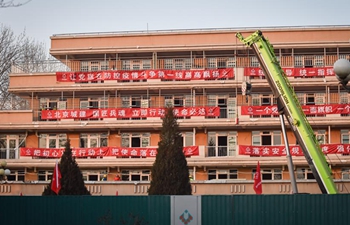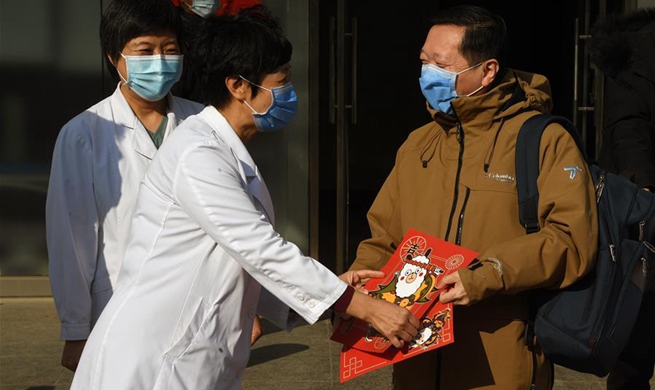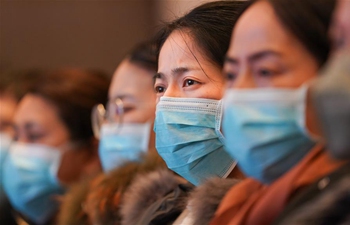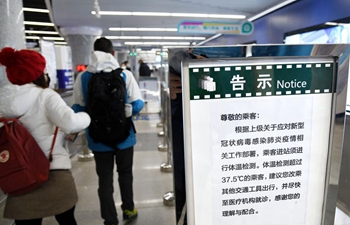by Alessandra Cardone
ROME, Jan. 30 (Xinhua) -- Climate change is considered the most urgent problem by at least one-fourth of Italians, according to the Rome-based Eurispes research institute's "Italy 2020" report presented here on Thursday.
Published at the beginning of each year, the report provides an overall picture of the Italian society and its main traits and trends at social, economic and political levels.
At least 26.6 percent of Italians identified climate change and global warming as the most pressing issue in terms of their personal wellbeing and social priorities in 2019, according to the latest report.
This percentage increased to 34.3 among young people in the 18 to 24 age group, but was lower -- only 16.1 percent -- among Italians aged 65 and over.
Yet, 34.7 percent of Italians overall said they would be ready to cut their own consumption and change their daily habits to help fight climate change, regardless of their personal opinion on the issue.
Back in 2018, only 23 percent of respondents were of this opinion.
Within this segment of society, 74.4 percent were ready to stop buying goods with plastic packaging to reduce the environmental impact, among other suggested measures.
Another 33.2 percent of Italians, however, believed that changing individual habits would only work if all members of society do that every day, while 32.1 percent said it would be useless in any case.
A second major conclusion emerging from the long research was that over half of Italians said they felt safe in the city where they live.
Forty-four percent of the respondents considered their city "quite safe" and 9.1 percent "very safe," while the rest felt "not much safe" (26.3 percent) or "not safe at all" (4.1 percent).
Thirty-three percent of those in the 18 to 24 age group felt the need to flag the lack of safety in their home city.
As for Italy's society as a whole, the report warned about a persisting "fracture between the establishment and the country" that would need to be cured.
"This fracture has emerged in the recent past, and is not yet healing," Eurispes President Gian Maria Fara said while presenting the report at a conference held at Rome's Sapienza University.
Fara said that Italy's domestic politics is often marked by "low-cost propaganda and one-time policies," and by a failure to address key issues, such as improving the efficiency of the country's justice system and public administration, boosting land management and infrastructure planning, and strengthening the school system.
"These are the real problems that are giving rise to widespread uneasiness and pessimism in Italian society ... and hampering the chances of fully exploiting our enormous potential and our ability to build up a future," Fara warned.
The report also showed that a majority of Italians still have faith in the country's public institutions, such as the presidency of the Republic, the police, the army and the judiciary.
Eurispes's 32nd annual report was based on interviews with 1,100 people representative of all sections of Italian society, and on official statistics and data, the institute said.













